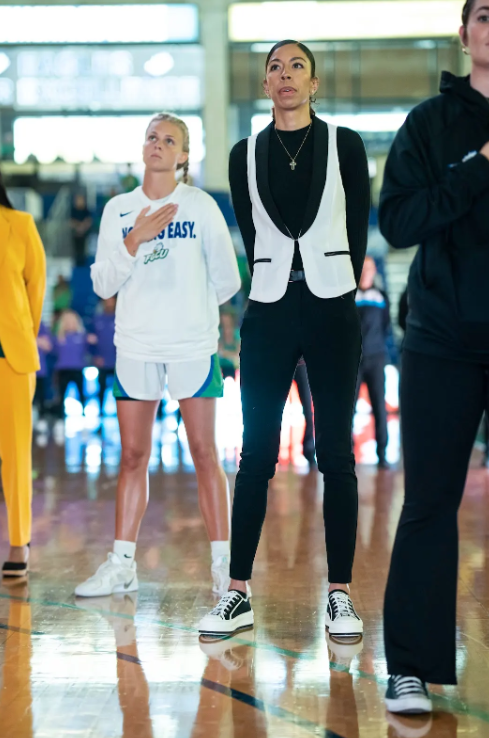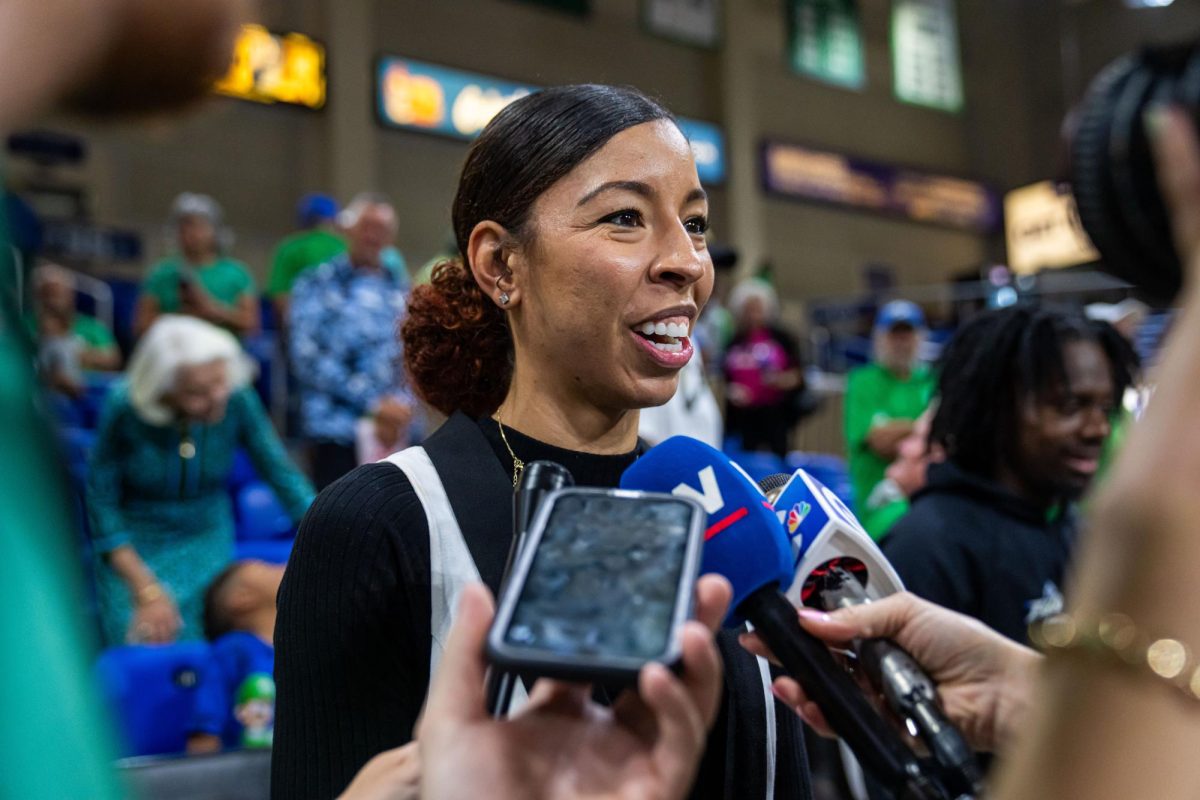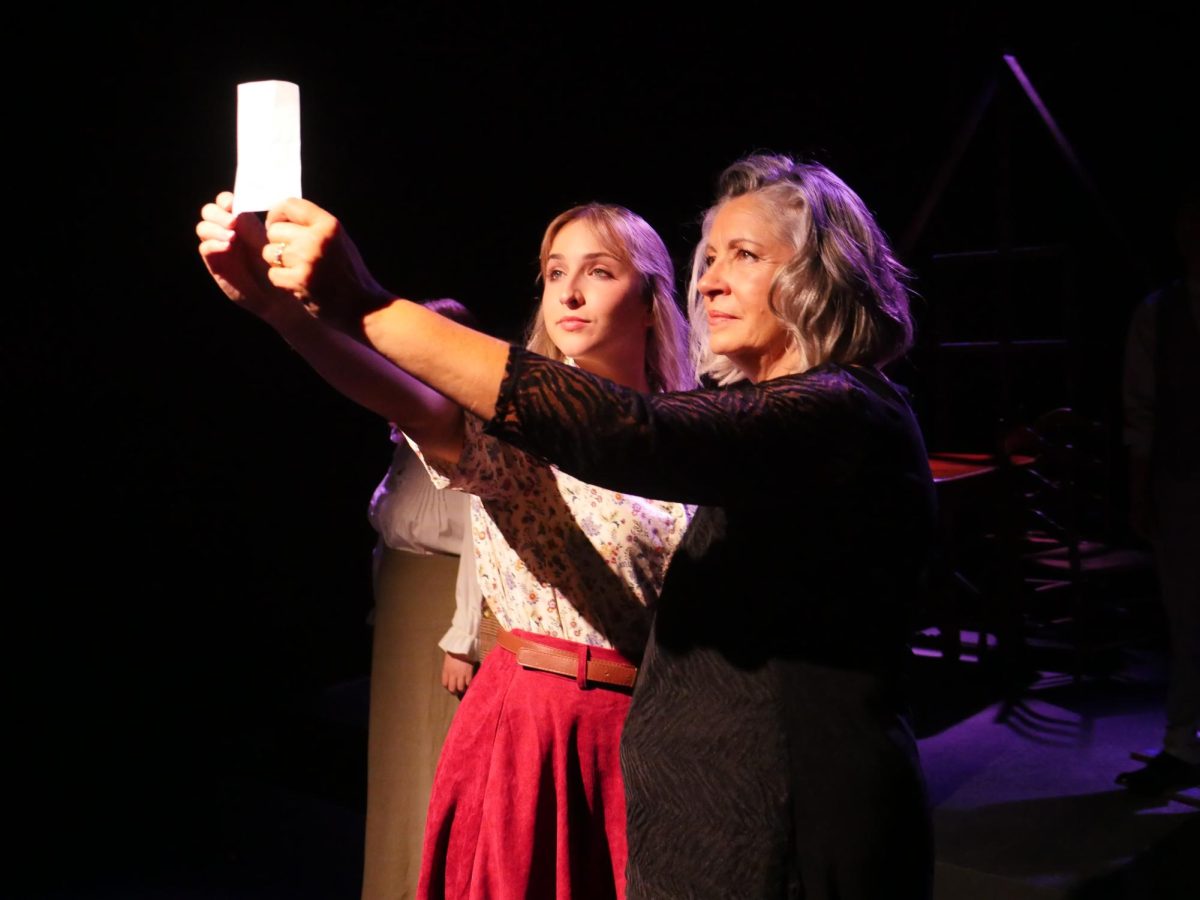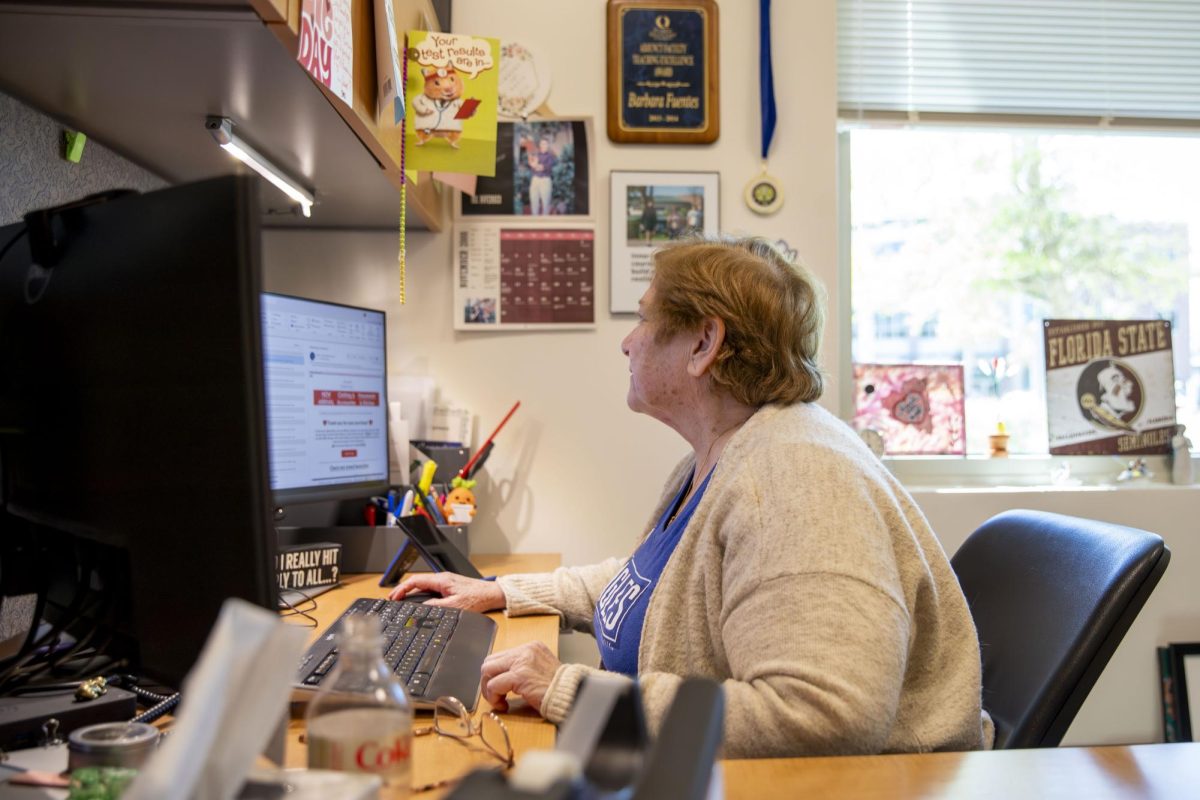From Nov. 1-10, FGCU’s theatre department presented “Letters To Sala” as its first major play of the year. This production brought to life an intimate look at the Holocaust and its survivors.
The play is adapted from “Sala’s Gift,” a book by Sala’s daughter, Ann Kirschner. In 1940, at just 16, Sala Garncarz was torn from her family and placed in a series of Nazi labor camps. Amid unimaginable hardships, she risked her life to keep letters, photographs and postcards from friends and family, items she held close as a source of strength and connection to the outside world. This collection of letters, which now resides in the New York Public Library, paints a vivid picture of survival, bravery and the enduring bonds of family.
Director Kristin Mellian traveled to the Holocaust Museum and Cohen Education Center to approach the production with immense dedication and sensitivity.
“Letters to Sala is about history, preservation, sharing, faith, family, memory and survival, all of which drew me to this story as a theatre artist,” Mellian said.“My experience researching the Holocaust for this play has been both haunting and heart-wrenching. It has also given me a great sense of purpose, as I worked with our talented team of creative artists and technicians to usher this production from page to stage.”
Presenting a story like “Letters to Sala” on a college campus invites students to confront the gravity of historical atrocities and explore the resilience of the human spirit. Addressing such a difficult topic within an academic setting fosters empathy and understanding and reminds the community of the importance of preserving memory to prevent the repetition of history.
“It was something that I think had to be handled with a lot of delicacy because it’s a very sensitive topic, so I know I, personally, consulted a lot of my friends who are of the Jewish faith because I wanted to make sure I approached it with such an open mind and I was accepting anything that they had to say,” Tatum Bates, who plays Young Sala, said.
Talking about the Holocaust and stories like Sala Garncarz’s ensures that the lessons of history are not forgotten, highlighting the dangers of hatred, intolerance, and systemic oppression. By remembering and discussing these events, we honor the lives affected, educate new generations about the consequences of unchecked prejudice, and reinforce the importance of resilience, empathy, and human rights in our society.
The rehearsal process leading up to opening night was interrupted by more than a week due to the FGCU’s evacuation for Hurricane Milton. Alana Agresspahl, another actress playing Young Sala, expressed the great amount of communication throughout the entire cast that made their resilience possible.
“Everyone just really pushed through and did the work that they needed to do and we were able to come out with this really wonderful production,” Agresspahl said. The emotional telling of Sala Garncarz’s experience takes a different approach to Holocaust education than the traditional fact-based briefing most people received in school.
Line Frambes is one of the actors cast to play an older version of Sala in the show. She provided her thoughts on what she thinks the audience should take away.
“I think people are going to take away a lot of heart and a lot of the emotional side of it because it’s through the lens of these letters that were written to Sala. It’s more so the emotional and the human aspect of the Holocaust,” Frambes said.


























